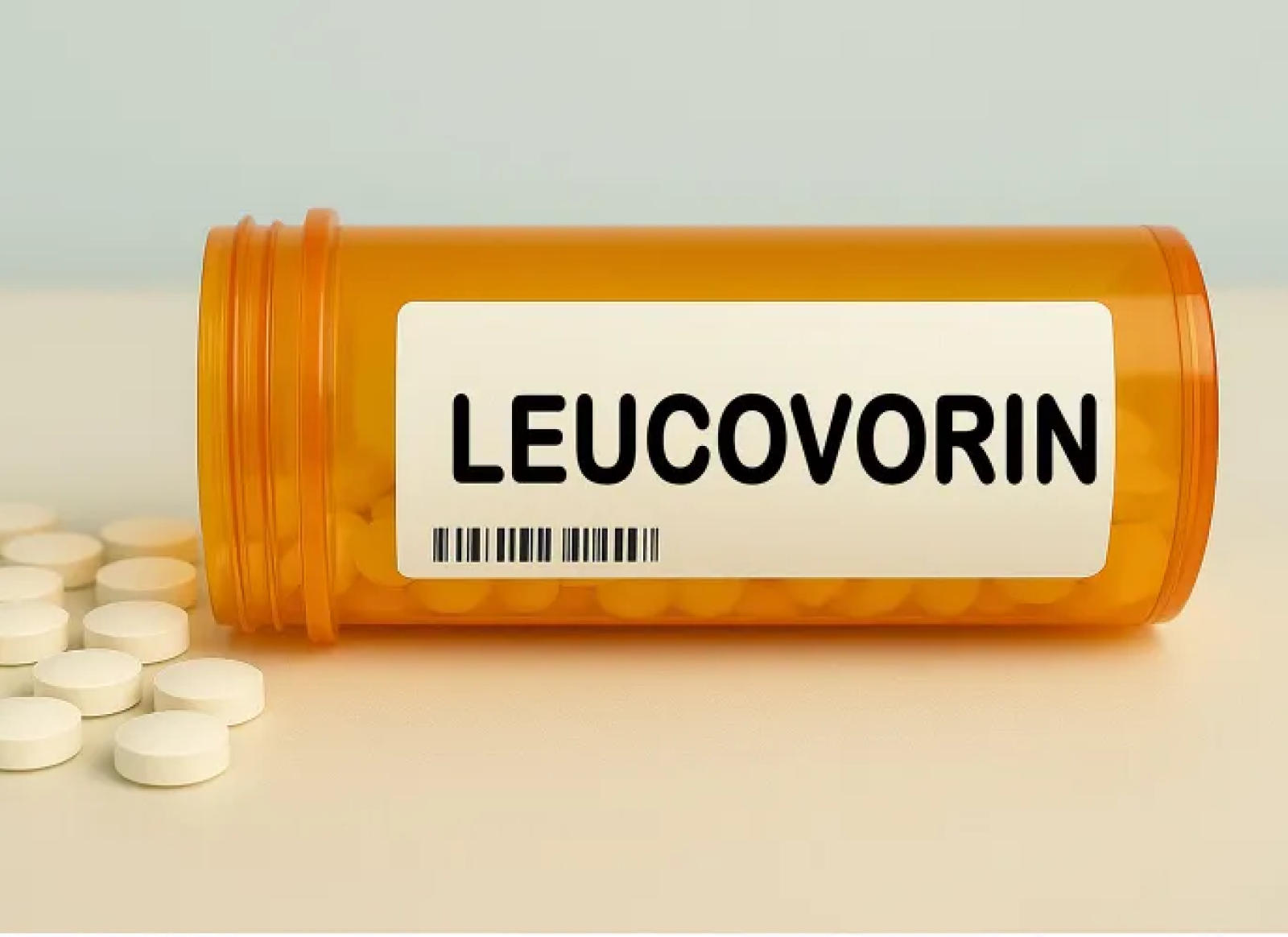0
$0.00
Mini Cart
Empty cart
No products in the cart.

Leucovorin, a form of folate, is widely recognized in oncology for its vital role as an antidote. However, beyond this critical conventional use, a growing area of clinical interest involves its application in supporting individuals with autism spectrum disorder (ASD). At Allure Compounding Pharmacy, we bridge these two worlds, providing reliable access to commercial Leucovorin while using our compounding expertise to create personalized doses for innovative, physician-directed treatment plans aimed at addressing specific metabolic needs.
Understanding Leucovorin: More Than Just Folinic Acid
Leucovorin, also known as folinic acid, is a metabolically active form of folate that the body can use directly without needing the complex conversion process required by folic acid. This distinction is crucial. In its conventional role, Leucovorin “rescues” healthy cells from the toxic effects of high-dose methotrexate chemotherapy, protecting them while the cancer treatment does its job. This established use underscores its fundamental role in cellular health and DNA synthesis, a role that forms the basis for its investigative applications in neurology.
The Commercial Standard and Its Limitations
Commercially available Leucovorin is a pharmaceutical-grade product, typically offered in standardized tablet strengths and injectable formulations. It is produced under strict FDA guidelines for its approved indications, ensuring consistency and purity for its primary use in oncology and for treating certain anemias. For many patients, these commercially available doses are perfectly adequate. However, this one-size-fits-all approach can be a barrier for off-label applications, particularly in sensitive populations like children, where precise, individualized dosing is often the key to both safety and efficacy.
The Investigative Link to Autism Spectrum Disorder
The connection between Leucovorin and autism centers on cerebral folate deficiency (CFD) and the role of folate receptor autoantibodies (FRAs). Research suggests that some individuals with ASD may produce antibodies that interfere with the transport of folate across the blood-brain barrier. This can lead to a deficiency of folate in the cerebrospinal fluid, despite normal levels in the blood. Since Leucovorin can utilize an alternative transport mechanism into the brain, it is theorized to bypass this blockade, potentially delivering the crucial folate that neurons need to function optimally.
The Compounding Advantage for Personalized Dosing
This is where Allure Compounding Pharmacy provides a critical service. While the science behind Leucovorin for autism is still evolving, physicians exploring this treatment require flexibility that commercial products cannot offer. We empower these clinicians by compounding Leucovorin into custom dosages. This allows for a slow, methodical titration from a very low dose, which is essential for monitoring individual tolerance and response in children. Furthermore, we can create palatable, dye-free liquid suspensions or specially formulated capsules, making daily administration easier for patients who struggle with swallowing pills.
A Partner in Integrative Care
It is vital to state that Leucovorin is not a cure for autism. Rather, for a specific subset of individuals with diagnosed folate-related metabolic issues, it may represent a supportive nutritional intervention. The decision to use Leucovorin in this context should always be made by a qualified healthcare provider following appropriate diagnostic consideration.
At Allure Compounding Pharmacy, our role is not to diagnose or prescribe, but to be a reliable partner in precision medicine. We provide the highest quality, customized Leucovorin preparations that allow physicians to execute highly personalized treatment protocols. By removing the barriers of fixed dosing and undesirable formulations, we help families and clinicians explore every potential avenue for support with confidence and quality assurance.
The FDA does not review any compounded drugs to evaluate their safety, effectiveness, or quality before they reach patients.
